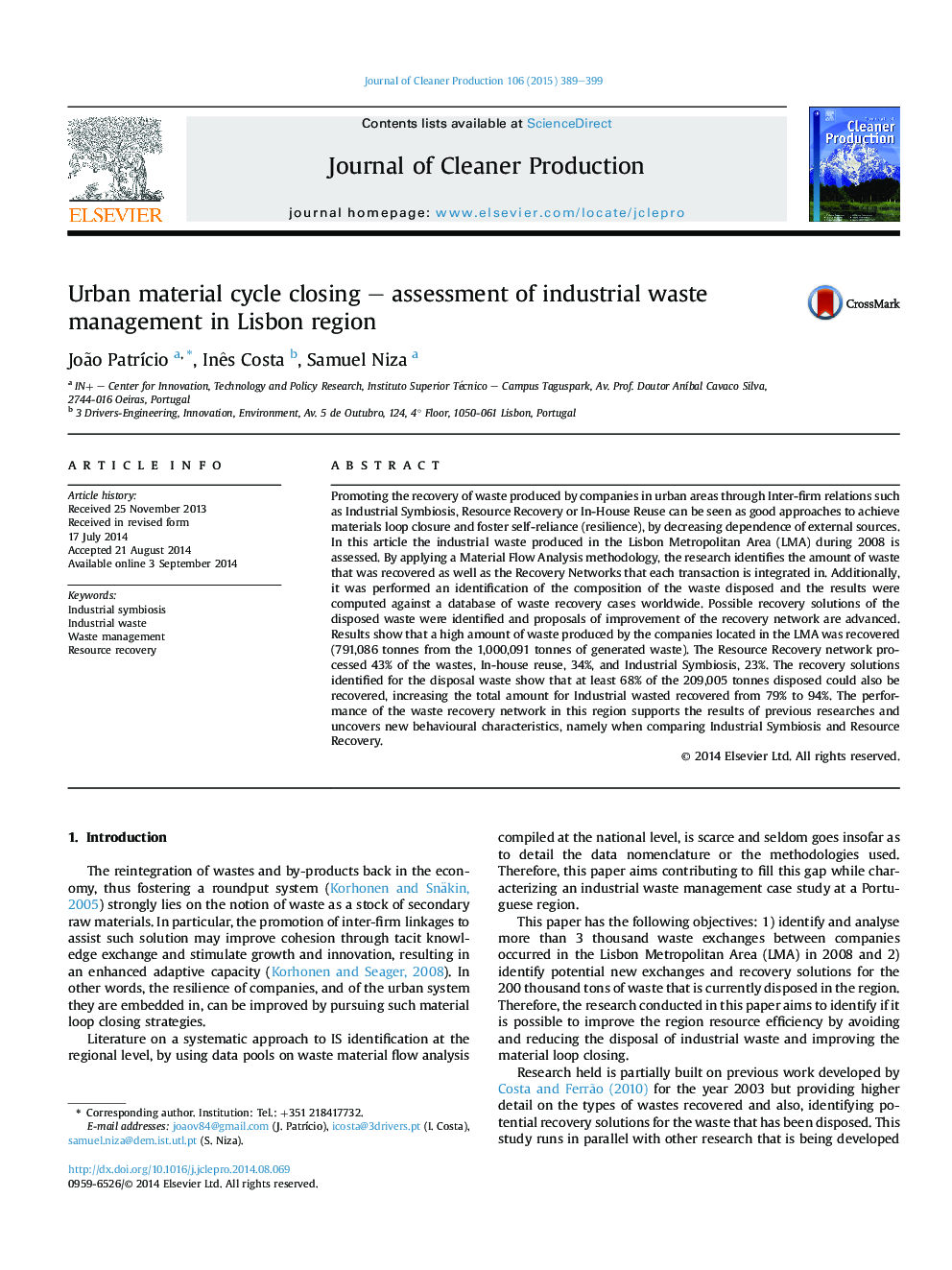| Article ID | Journal | Published Year | Pages | File Type |
|---|---|---|---|---|
| 8103231 | Journal of Cleaner Production | 2015 | 11 Pages |
Abstract
Promoting the recovery of waste produced by companies in urban areas through Inter-firm relations such as Industrial Symbiosis, Resource Recovery or In-House Reuse can be seen as good approaches to achieve materials loop closure and foster self-reliance (resilience), by decreasing dependence of external sources. In this article the industrial waste produced in the Lisbon Metropolitan Area (LMA) during 2008 is assessed. By applying a Material Flow Analysis methodology, the research identifies the amount of waste that was recovered as well as the Recovery Networks that each transaction is integrated in. Additionally, it was performed an identification of the composition of the waste disposed and the results were computed against a database of waste recovery cases worldwide. Possible recovery solutions of the disposed waste were identified and proposals of improvement of the recovery network are advanced. Results show that a high amount of waste produced by the companies located in the LMA was recovered (791,086 tonnes from the 1,000,091 tonnes of generated waste). The Resource Recovery network processed 43% of the wastes, In-house reuse, 34%, and Industrial Symbiosis, 23%. The recovery solutions identified for the disposal waste show that at least 68% of the 209,005 tonnes disposed could also be recovered, increasing the total amount for Industrial wasted recovered from 79% to 94%. The performance of the waste recovery network in this region supports the results of previous researches and uncovers new behavioural characteristics, namely when comparing Industrial Symbiosis and Resource Recovery.
Related Topics
Physical Sciences and Engineering
Energy
Renewable Energy, Sustainability and the Environment
Authors
João PatrÃcio, Inês Costa, Samuel Niza,
